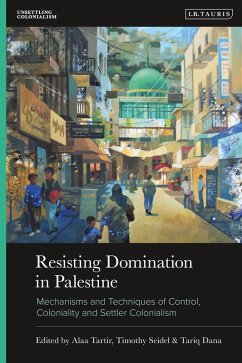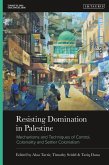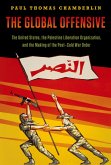This meticulously curated edited volume presents an assemblage of insightful, critical, and contemporary perspectives on how Israeli domination has been sustained and reproduced in new forms and means using various mechanisms and techniques of control, coloniality, and settler colonialism. Based on original empirical fieldwork, the contributors to this book adopt interdisciplinary and decolonial approaches in their examination of the intricate functions and structures of domination that permeate Palestinian life by illuminating the power dynamics at play and revealing the mechanisms that sustain the settler-colonial regime.
This book identifies sites of colonial control and domination exerted on Palestine by Israel, and demonstrates how these sites of control are also sites of Palestinian resistance. The first section explores the political sites of control by focusing on governmentality, institutions, and technologies and mechanisms of control including how Israel manages access to health, life and death. The second section examines the economic mechanisms of exploitation, dispossession, and de-development including banking, taxation and the relationships between finance capital, aid and military occupation. The third section turns attention to environmental sites of control, focusing on land, indigeneity, space and racial capitalism. Finally, section four scrutinizes the intellectual sites of control, highlighting how norms, narratives, and knowledge production perpetuate domination.
This book identifies sites of colonial control and domination exerted on Palestine by Israel, and demonstrates how these sites of control are also sites of Palestinian resistance. The first section explores the political sites of control by focusing on governmentality, institutions, and technologies and mechanisms of control including how Israel manages access to health, life and death. The second section examines the economic mechanisms of exploitation, dispossession, and de-development including banking, taxation and the relationships between finance capital, aid and military occupation. The third section turns attention to environmental sites of control, focusing on land, indigeneity, space and racial capitalism. Finally, section four scrutinizes the intellectual sites of control, highlighting how norms, narratives, and knowledge production perpetuate domination.









